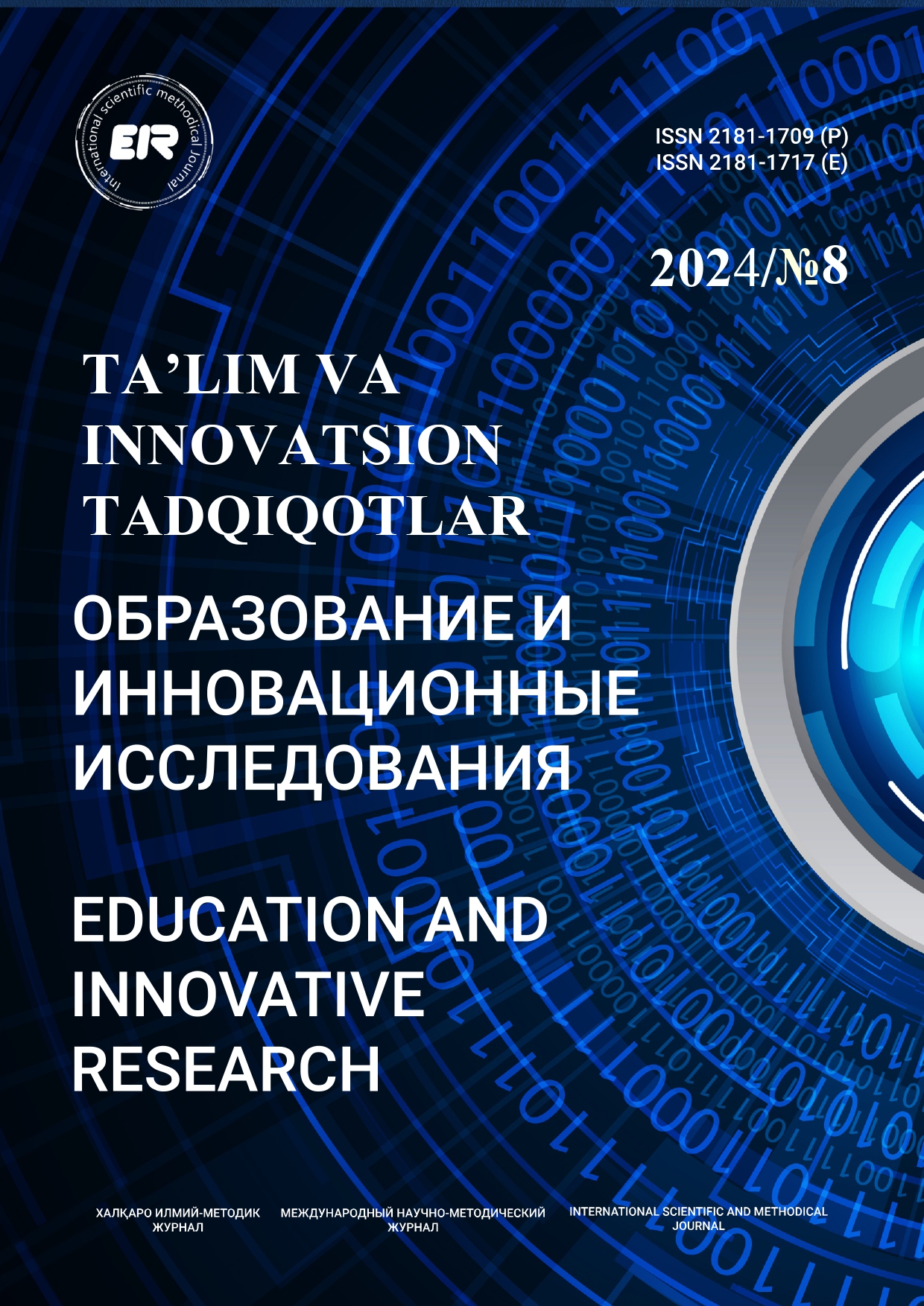ЧЕТЫРЕ ПРИКЛАДНЫХ ИССЛЕДОВАТЕЛЬСКИХ МОДУЛЯ, ОСНОВАННЫХ НА ПСИХОЛОГИЧЕСКОЙ ГРАМОТНОСТИ
Файзуллаев Мирзаодил Мирзамуродович, Университет бизнеса и науки Преподаватель кафедры педагогики и психологии
Ключевые слова:
психологическая грамотность, глобальная гражданственность, аутентичная оценка, командная работа.Аннотация
Психологическая грамотность – это подход к обучению, который побуждает студентов рассматривать свои предметные знания в практическом контексте «реального мира» (т.е. жизни студентов за пределами университета), будь то профессиональные, личные или социальные. Под «реальным миром» здесь подразумевается применение психологических знаний и навыков в личных, студенческих ролях, на работе и в обществе. Психологическая грамотность обычно интегрируется в программы по психологии посредством занятий в классе, внеклассных занятий и внеклассных возможностей. Однако для полной реализации цели психологической грамотности должны быть намеренно и продуманно включены на уровне модулей и программ. Один из способов добиться этого – разработать и оценить модули (т. е. автономные модули или курсы), которые по своей сути явно включают психологическую грамотность. К ним относятся обязательный модуль первого года («Биологические подходы к человеческому и нечеловеческому поведению»), обязательный модуль второго года («Нейронаука») и два факультативных модуля последнего года («Восприятие лица» и «Феминистская социальная психология»). «) как преподаватели, заинтересованные в развитии психологической грамотности учащихся, мы предлагаем отзывы о процессе разработки этих модулей, а также предоставляем оценки учащихся.
Библиографические ссылки
Anvarovna A. S. CONSTRUCTIONS (MODELS) OF SOCIAL INTELLIGENCE IN FUTURE ENGLISH LANGUAGE TEACHERS //Horizon: Journal of Humanity and Artificial Intelligence. – 2023. – Т. 2. – №. 4. – С. 169-172.
Ataxo’jayeva S. A. et al. INGLIZ TILINI O’RGATISHDA LOYIXA ISHINI TASHKIL QILISHNING AFZALLIKLARI //Science and Education. – 2020. – Т. 1. –№. 1. – С. 403-406.
Ataxo’jayeva S. EMPERIAL FOUNDATIONS OF THE STUDY ENGLISH LANGUAGE TEACHERS //GULDU AXBOROTNOMASI. – 2023.
Avlaev, O. (2023). SOME CONSIDERATIONS ON SOCIAL INTELLIGENCE. Science and innovation, 2(B3), 99-102.
Baxtiyarovna S. D. B. D. et al. KASB TA’LIM METODIKASINING ZAMONAVIY METODLARI //Scientific Impulse. – 2022. – Т. 1. – №. 3. – С. 417-420.
Norkobilovna J. S. et al. Cultural and Historical Prerequisites for the Development of the Innovative Potential of the Subject of Creativity //Annals of the Romanian Society for Cell Biology. – 2021. – С. 2982-2986.
Qurbonalijon G’aybullo o’g Z. et al. MALAKAVIY PEDAGOGIK AMALIYOTNI TASHKIL ETISH VA O’TKAZISH //Scienceweb academic papers collection. – 2021.
Sulliyeva S. X. BIOKIMYO VA MOLEKULYAR BIOLOGIYA (2-QISM. MOLEKULYAR BIOLOGIYA) //Scienceweb academic papers collection. – 2022.
Sulliyeva S. X. et al. BIOLOGIK TA’LIMNING ROLI //Журнал естественных наук. – 2021. – Т. 1. – №. 1.
Umirovich A. O. et al. VIEWS OF THINKERS ON ISSUES OF FAMILY AND FAMILY RELATIONS //Horizon: Journal of Humanity and Artificial Intelligence. – 2023. – Т. 2. – №. 5. – С. 508-511.
Буриев Х. Ч. САБЗАВОТ ЭКИНЛАРИ СЕЛЕКЦИЯСИ, УРУҒЧИЛИГИ ВА КЎПАЙТИРИШ УСУЛЛАРИ ФАНИНИ ЎҚИТИШ УСЛУБИЁТИ //Scienceweb academic papers collection. – 2022.
Джураева С. Н., Дустова Д. С. Способы воспитания личных качеств у студентов педагогической специальности //Academy. – 2019. – №. 6 (45). – С. 96-98.





